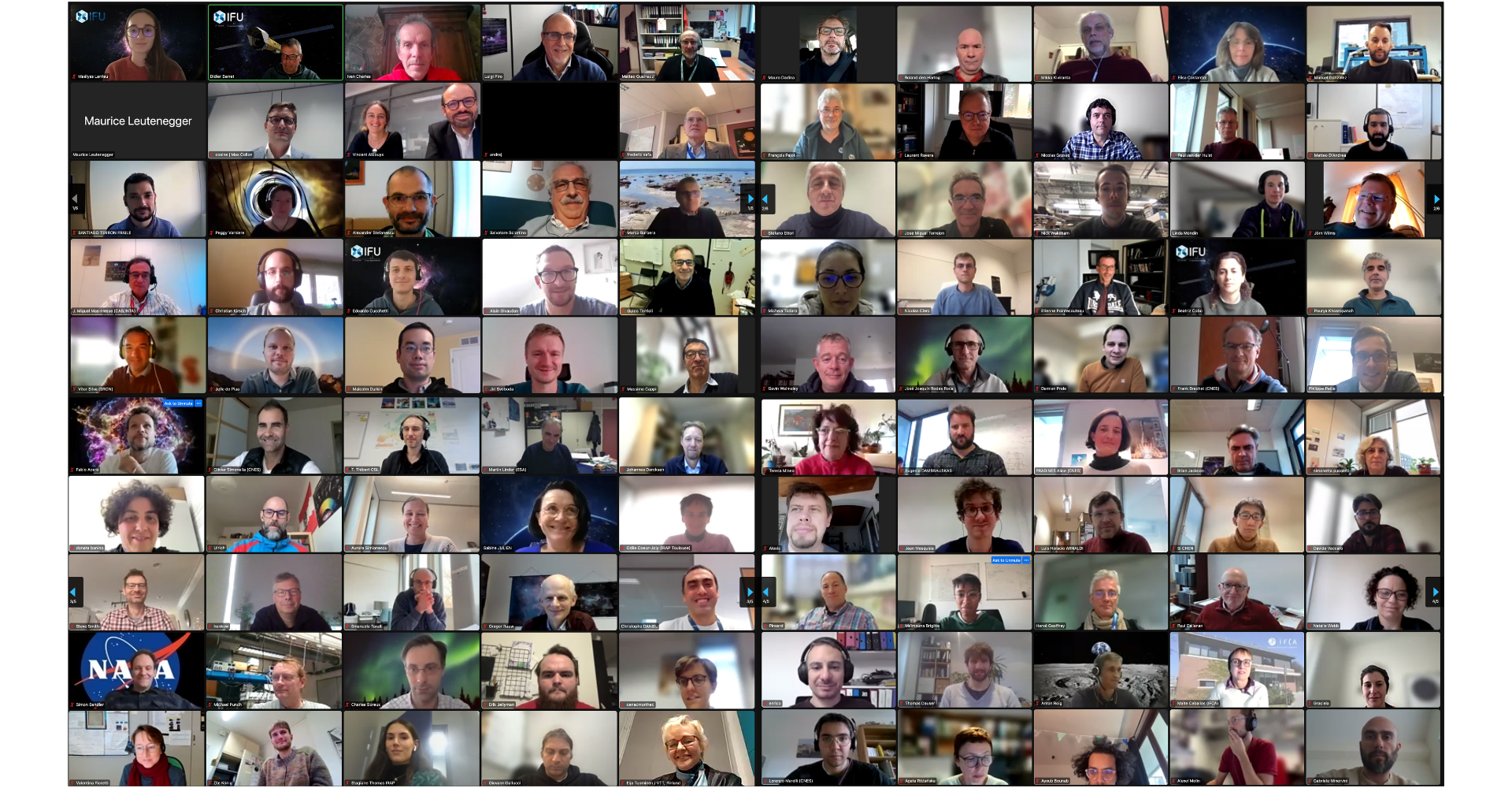
Date.
From November 20 to 22, men and women gathered online for the 17th Consortium Meeting of the X-IFU consortium. The members of the X-IFU Consortium shared three days of rich scientific and technical exchanges. We shared the results of the Consortium’s work, in the context of relaunching the project after the reformulation phase of the Athena mission. For this session, 34 speakers presented the progress of their work to an audience of 178 participants.
Discussions focused on the changes linked to this reformulation phase on the X-IFU instrument. The speakers were able to explain the changes from a global point of view in terms of architecture and performance. The X-IFU Principal Investigator, Didier Barret and the X-IFU Project Manager, Vincent Albouys, agreed that today, we do have a powerful X-IFU to fly on-board the flagship Athena mission, promised to deliver breakthrough science.
The Consortium is ready to get started with the industrial activities. In addition, member states are unanimously supporting Athena. A clear engineering plan exists with priorities on the Dewar design, 4K cooler I/F, critical I/F with the payload module. Overall all subsystems are making great progresses in terms of design and maturity.
As with previous editions, a presentation provided an opportunity to reflect on the Consortium’s carbon footprint. This time, Alexandre Santerne focused on air travel and its impact on the environment and he showed that setting quotas is the most powerful way to reduce the greenhouse gas emission from travels. He is a french astronomer, working at the Laboratoire d’Astrophysique de Marseille as part of the Aix-Marseille University. His presentation was part of the scientific publication “Flight Quotas Hold the Most Significant Potentialfor Reducing Carbon Emissions from AcademicTravel“.
Thanks again to our many speakers, chairs and participants for this 17th edition of the Consortium Meeting!


 Youtube
Youtube